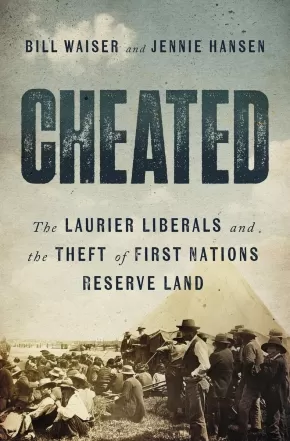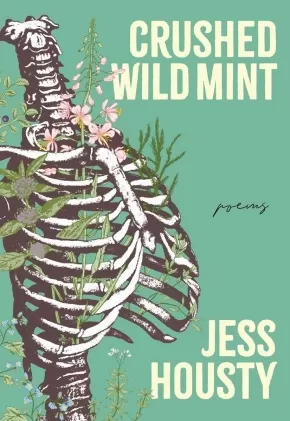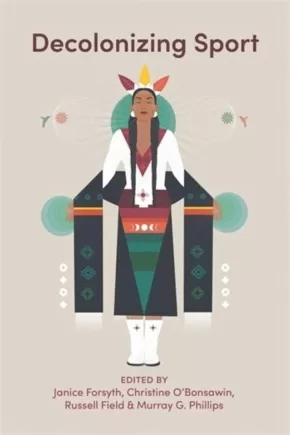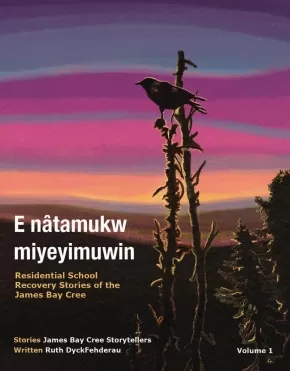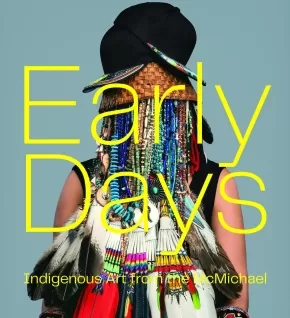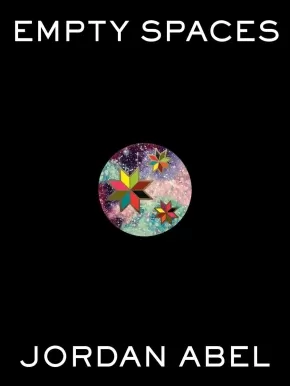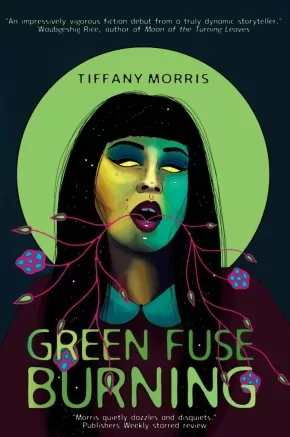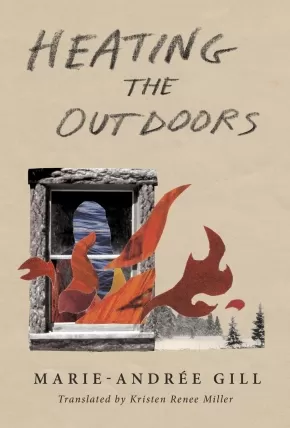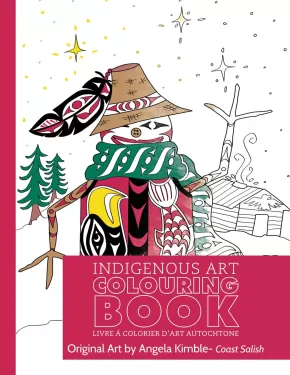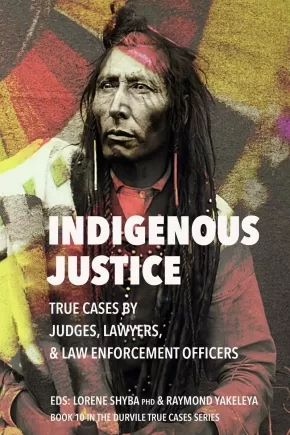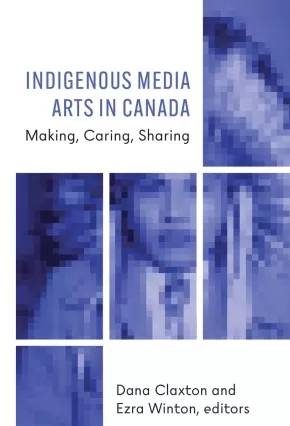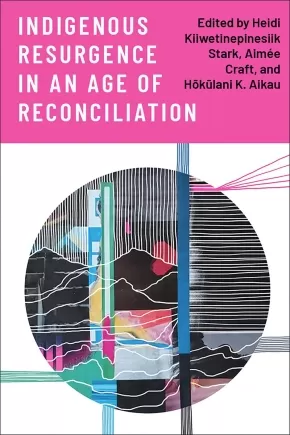
First Nations
181
-
195
of
786 Results;
Sort By
Go To
of 53
Canadian Business Owner's Guide to Reconciliation: Best Practices for Indigenous Inclusion
$29.95
Format:
Paperback
Text Content Territories:
Indigenous Canadian;
Reading Level: N/A
ISBN / Barcode: 9781770403475
Synopsis:
Synopsis:
Reconciliation is for businesses, too.
From colonization through the Indian Act and residential schools, there is a lot of complicated history in the country we now call Canada. Between Indigenous and non-Indigenous people there is a disconnect, a fractured relationship we now need to make right. But what does Reconciliation mean, and specifically what does it mean for businesses?
The Canadian Business Owner’s Guide to Reconciliation is about how our history affects the present, and how we need to deal with the past so we can move into the future together. It’s about creating opportunities to include Indigenous voices in business, education around Indigenous history and best practices for businesses, and how we can reverse some of the unfair and unsustainable practices to create a better, more inclusive climate.
Author Alison Tedford brings her experience working with government, business, and nonprofits on Indigenous issues including reconciliation over the past two decades to this book.
If you're in business in Canada, you need to know how you can participate in reconciliation and transforming relations for a brighter future.
Additional Information
128 pages | 6.00" x 9.00" | Paperback
Carving Space: The Indigenous Voices Awards Anthology
$24.95
Editors:
Format:
Paperback
Text Content Territories:
Indigenous Canadian; Métis; Inuit; First Nations;
ISBN / Barcode: 9780771004858
Synopsis:
Synopsis:
To celebrate the fifth anniversary of the Indigenous Voices Awards, an anthology consisting of selected works by finalists over the past five years, edited by Jordan Abel, Carleigh Baker, and Madeleine Reddon.
For five years, the Indigenous Voices Awards have nurtured the work of Indigenous writers in lands claimed by Canada. Established in 2017 initially through a crowd-funded campaign by lawyer Robin Parker and author Silvia Moreno-Garcia that set an initial fundraising goal of $10,000, the initiative raised over $116,000 in just four months.
Through generous support from organizations such as Penguin Random House Canada, CELA, and others, the award has grown and have helped usher in a new and dynamic generation of Indigenous writers. Past IVA recipients include Billy-Ray Belcourt, Tanya Tagaq, and Jesse Thistle. The IVAs also help promote the works of unpublished writers, helping launch the careers of Smokii Sumac, Cody Caetano, and Samantha Martin-Bird.
For the first time, a selection of standout works over the past five years of the Indigenous Voices Award will be collected in an anthology that will highlight some of the most groundbreaking Indigenous writing across poetry, prose, and theatre in English, French, and in an Indigenous language. Curated by award-winning and critically acclaimed writers Carleigh Baker, Jordan Abel, and Indigenous scholar Madeleine Reddon, this anthology will be a true celebration of Indigenous storytelling that will both introduce readers to emerging luminaries as well as return them to treasured favourites.
Educator Information
Carving Space: The Indigenous Voices Awards Anthology: A collection of prose and poetry from emerging Indigenous writers in lands claimed by Canada includes a selection of standout work from the first five years of the Indigenous Voices Awards.
Additional Information
400 pages | 5.50" x 8.25" | Paperback
Cheated: The Laurier Liberals and the Theft of First Nations Reserve Land
$29.95
Format:
Paperback
Text Content Territories:
Indigenous Canadian; First Nations; Assiniboine (Nakoda Oyadebi); Siyónide Nakóna Oyáde (Pheasant Rump Nakota First Nation); Ocean Man First Nation;
Reading Level: N/A
ISBN / Barcode: 9781770417489
Synopsis:
Synopsis:
“Canadians and politicians have a common responsibility: to learn from the mistakes inherited from a colonialist legacy; and to not repeat the wrongs, corruption, and injustices our people suffered in the hands of government officials, politicians, and their oppressive laws. Reading and learning from Cheated would be a good place to start reconciliation and reparation.” — Ovide Mercredi, former National Chief of the Assembly of First Nations
The story of how Laurier Liberals took hold of the Department of Indian Affairs in 1896 and transformed it into a machine for expropriating Indigenous land.
You won’t find the Ocean Man and Pheasant Rump reserves on a map of southeastern Saskatchewan. In 1901, the two Nakoda bands reluctantly surrendered the 70 square miles granted to them under treaty. It’s just one of more than two dozen surrenders aggressively pursued by the Laurier Liberal government over a fifteen-year period. One in five acres was taken from First Nations.
This confiscation was justified on the grounds that prairie bands had too much land and that it would be better used by white settlers. In reality, the surrendered land was largely scooped up by Liberal speculators — including three senior civil servants and a Liberal cabinet minister —and flipped for a tidy profit. None were held to account.
Cheated is a gripping story of single-minded politicians, uncompromising Indian Affairs officials, grasping government appointees, and well-connected Liberal speculators, set against a backdrop of politics, power, patronage, and profit. The Laurier government’s settlement of western Canada can never be looked at the same way again.
Additional Information
352 pages | 5.75" x 8.75" | 68 b&w photos; 3 maps | Paperback
Crushed Wild Mint
$19.95
Format:
Paperback
Text Content Territories:
Indigenous Canadian; First Nations; Heiltsuk (Bella Bella);
Reading Level: N/A
ISBN / Barcode: 9780889714502
Synopsis:
Synopsis:
Crushed Wild Mint is a collection of poems embodying land love and ancestral wisdom, deeply rooted to the poet’s motherland and their experience as a parent, herbalist and careful observer of the patterns and power of their territory. Jess Housty grapples with the natural and the supernatural, transformation and the hard work of living that our bodies are doing—held by mountains, by oceans, by ancestors and by the grief and love that come with communing.
Housty’s poems are textural—blossoms, feathers, stubborn blots of snow—and reading them is a sensory offering that invites the reader’s whole body to be transported in the experience. Their writing converses with mountains, animals and all our kin beyond the human realm as they sit beside their ancestors’ bones and move throughout the geography of their homeland. Housty’s exploration of history and futurity, ceremony and sexuality, grieving and thriving invites us to look both inward and outward to redefine our sense of community.
Through these poems we can explore living and loving as a practice, and placemaking as an essential part of exploring our humanity and relationality.
Awards
- 2024 Bill Duthie Booksellers’ Choice Award winner
- 2024 Dorothy Livesay Poetry Award winner
Reviews
"When the mountains of your territory are your ancestors, you paint the landscapes as Jess Housty does in this evocative, powerful collection of poetry: in the language of ceremony as taut as the inner surface of a mussel shell when the meat is stripped away. Their hyperlocality is precise medicine, an expansive, generous meditation on the mutual care of mountains, the forgiving veins of rivers, all the liminal territories and beings soaked in the verdant magic of the Pacific Northwest Coast." — Eden Robinson
"I return to read and then stop to wonder, return to read and still wonder: How is this so true? Let these words love you. They’ll sing." — Michael Nicoll Yahgulanaas
Additional Information
132 pages | 5.50" x 8.00" | Paperback
Decolonizing Sport
$29.00
Format:
Paperback
Text Content Territories:
Indigenous Peoples in Africa; Indigenous New Zealander; Indigenous Canadian; Indigenous Australian; Indigenous American; Indigenous;
Reading Level: N/A
ISBN / Barcode: 9781773636344
Synopsis:
Synopsis:
Indigenous Peoples have taken physical recreational activity – sport – back from the colonizers. One of very few books to show the two edges of sport: it colonized but is now decolonizing.
Decolonizing Sport tells the stories of sport colonizing Indigenous Peoples and of Indigenous Peoples using sport to decolonize. Spanning several lands — Turtle Island, the US, Australia, Aotearoa/New Zealand and Kenya — the authors demonstrate the two sharp edges of sport in the history of colonialism. Colonizers used sport, their own and Indigenous recreational activities they appropriated, as part of the process of dispossession of land and culture. Indigenous mascots and team names, hockey at residential schools, lacrosse and many other examples show the subjugating force of sport. Yet, Indigenous Peoples used sport, playing their own games and those of the colonizers, including hockey, horse racing and fishing, and subverting colonial sport rules as liberation from colonialism. This collection stands apart from recent publications in the area of sport with its focus on Indigenous Peoples, sport and decolonization, as well as in imagining a new way forward.
Educator Information
Table of Contents
Sport, Colonialism and Decolonization (Janice Forsyth, Christine O’Bonsawin, Murray G. Phillips and Russell Field)
Section 1: Storytelling Beyond Competition: An Indigenous Perspective on Organized Sport (Brian Rice)
More Than a Mascot: How the Mascot Debate Erases Indigenous People in Sport (Natalie Welch)
Section 2: Interrogating the Archive Witnessing Painful Pasts: Understanding Images of Sports at Canadian Indian Residential Schools (Taylor McKee and Janice Forsyth)
On the Absence of Indigenous Moving Bodies: Whiteness, Decolonization and Indigenous/Indigenizing Sport History (Malcolm MacLean)
Section 3: Rights and Reconciliation # 87: Reconciliation, Sport History and Indigenous Peoples in Canada (Victoria Paraschak)
Taken at Face Value: The Legal Feasibility of Indigenous-Led Olympic Games (Christine O’Bonsawin)
Section 4: Settler Colonialism Canoe Races to Fishing Guides: Sport and Settler Colonialism in Mi’kma’ki (John Reid)
Moments of Transcending Colonialism? Rodeos and Races in Lethbridge (Robert Kossuth)
“Men Pride Themselves on Feats of Endurance”: Masculinities and Movement Cultures in Kenyan Running History (Michelle M. Sikes)
Section 5: Resistance and Activism Stealing, Drinking and Non-Cooperation: Sport, Everyday Resistance in Aboriginal Settlements in Australia (Gary Osmond)
Let’s Make Baseball! Practices of Unsettling on the Recreational Ball Diamonds of Tkaronto/Toronto (Craig Fortier and Colin Hastings)
Subjugating and Liberating at Once: Indigenous Sport History as a Double Edged Sword (Brendan Hokowhitu)
Additional Information
256 pages | 6.00" x 9.00" | Paperback
E nâtamukw miyeyimuwin: Residential School Recovery Stories of the James Bay Cree, Volume 1
$29.99
Format:
Paperback
Text Content Territories:
Indigenous Canadian; First Nations; Cree (Nehiyawak); James Bay Cree;
Reading Level: N/A
ISBN / Barcode: 9781989796238
Synopsis:
Synopsis:
In this quietly powerful and deeply human book, Ruth DyckFehderau and twenty-one James Bay Cree storytellers put a face to Canada’s Indian Residential School cultural genocide.
Through intimate personal stories of trauma, loss, recovery, and joy, they tell of experiences in the residential schools themselves, in the homes when the children were taken, and on the territory after survivors returned and worked to recover from their experiences and to live with dignity. The prose is clear and accessible, the stories remarkably individual, the detail vivid but not sensational.
Together they reveal the astonishing courage and strength of children along with the complexity and myriad methods of their oppressors. A tough, often funny, and ultimately uplifting book that’s not quite like anything else out there.
This book is published by Cree Board of Health and Social Services of James Bay and distributed by WLU Press.
Reviews
“These previously unwritten stories of lived, traumatized experiences are testament to the storytellers’ courage and strength and resilience. When the rich Cree traditional and spiritual relationship with land and with family is harmed by separation, hatred, and fear - a harm resulting in anger and loss of values, identity, and self-worth - these storytellers find ways to heal. Through their stories, you learn about culture as treatment, about the power of forgiveness and love, and about peaceful co-existence in community as essential to healing, belief, and advancing true reconciliation.” —Chief Willie Littlechild, Ermineskin Cree Nation, Former Truth and Reconciliation Commissioner, Former residential school student athlete, Order of Canada; Order of Sport, Member of Sports Halls of Fame, Canada and North America
“These Cree stories, told with utmost respect and a feeling of safety, are gifts. They are medicine.” —Joanna Campiou, Woodland/Plains Cree Knowledge Keeper
“This is a difficult but necessary book. There’s a power to truth and to the realities of the Indian Residential School system, but for those wanting to see strength and movement toward hope, this is the book for you. These stories hold that hope close to the heart. What shines through is a love of the land, a love of community, a love of the Cree language, a love of family – exactly what colonial forces like the IRS system tried to destroy but couldn’t.” —Conor Kerr, Metis/Ukrainian author, Avenue of Champions, Giller Prize longlist
Additional Information
320 pages | 7.00" x 9.00" | Paperback
Early Days: Indigenous Art from the McMichael
$70.00
Artists:
Format:
Hardcover
Text Content Territories:
Indigenous Canadian;
ISBN / Barcode: 9781773272337
Synopsis:
Synopsis:
A landmark publication bringing together more than seventy voices illuminating the rich array of Indigenous art held by the McMichael Canadian Art Collection.
Under the editorial direction of Anishinaabe artist and scholar Bonnie Devine, Early Days gathers the insights of myriad Indigenous cultural stakeholders, informing us on everything from goose hunting techniques, to the history of Northwest Coast mask-making, to the emergence of the Woodland style of painting and printmaking, to the challenges of art making in the Arctic, to the latest developments in contemporary art by Indigenous peoples from across Turtle Island.
Splendidly illustrated, Early Days not only tells the story of a leading collection but also traces the emergence and increasing participation of many Indigenous artists in the contemporary art world. This publication will be the largest in the history of the McMichael, and represents a vital acknowledgment of the place of Indigenous art and ways of knowing in global art history.
Featured contributors: Barry Ace, Leland Bell, Dempsey Bob, Christian Chapman, Violet Chum, Hannah Claus, Dana Claxton, Jisgang Nika Collison, Alan Corbiere, Marcia Crosby, Ruth Cuthand, Mique'l Dangeli, Joe David, Sarah Davidson, Robert Davidson, Bonnie Devine, Tarralik Duffy, Norma Dunning, David Garneau, John Geoghegan, Janice Grey, Haay'uups (Ron Hamilton), Jim Hart, Emma Hassencahl-Perley, Emily Henderson, Lynn A. Hill, Richard Hill, Maria Hupfield, Jaimie Isaac, Heather Igoliorte, Luis Jacob, Gayle Kabloona, William Kingfisher, Jessica Kotierk, Robin Laurence, Duane Linklater, Ange Loft, Tanya Lukin Linklater, Jean Marshal, Michael Massie, Gerald McMaster, Ossie Michelin, Sarah Milroy, Antoine Mountain, Nadia Myre, Jeneen Frei Njootli, Ruth Phillips, Jocelyn Piirainen, Ryan Rice, Carmen Robertson, Paul Seesequasis, Leanne Betasamosake Simpson, Wedlidi Speck, Clyde Tallio, Drew Hayden Taylor, Nakkita Trimble-Wilson, Jesse Tungilik, Camille Georgeson Usher, William Wasden Jr., Jordan Wilson, Jessica Winters.
Additional Information
400 pages | 11.00" x 10.00" | 200 Colour Photographs | Hardcover
Empty Spaces
$30.00
Format:
Hardcover
Text Content Territories:
Indigenous American; Native American; Mohican; Indigenous Canadian; First Nations; Nisga'a;
Grade Levels: 12; University/College;
ISBN / Barcode: 9780771002014
Synopsis:
Synopsis:
From the acclaimed, boundary-breaking author of NISHGA comes a hypnotic and mystifying exploration of land and legacy.
Reimagining James Fenimore Cooper’s nineteenth-century text The Last of the Mohicans from the contemporary perspective of an urban Nisga’a person whose relationship to land and traditional knowledge was severed by colonial violence, Jordan Abel explores what it means to be Indigenous without access to familial territory and complicates popular understandings about Indigenous storytelling. Engaging the land through fiction and metaphor, the successive chapters of Empty Spaces move toward an eerie, looping, and atmospheric rendering of place that evolves despite the violent and reckless histories of North America. The result is a bold and profound new vision of history that decenters human perception and forgoes Westernized ways of seeing.
Jordan Abel’s extraordinary debut work of fiction grows out of his groundbreaking visual compositions in NISHGA, which integrated descriptions of the landscape from Cooper’s settler classic into his father's traditional Nisga'a artwork. In Empty Spaces, Abel reinscribes those words on the page itself, subjecting them to bold rewritings and inviting us to come to a crucial understanding: that the land knows everything that can and will happen, even as our world lurches toward uncertainty.
Additional Information
224 pages | 6.24" x 8.27" | B&W illustrations throughout | Hardcover
Green Fuse Burning
$19.99
Format:
Paperback
Text Content Territories:
Indigenous Canadian; First Nations; Mi'kmaq;
Reading Level: N/A
ISBN / Barcode: 9781778092664
Synopsis:
Synopsis:
After the death of her estranged father, artist Rita struggles with grief and regret. There was so much she wanted to ask him – about his childhood, their family, and the Mi'kmaq language and culture from which Rita feels disconnected. But when Rita's girlfriend Molly forges an artist's residency application on her behalf, winning Rita a week to paint at an isolated cabin, Rita is both furious and intrigued. The residency is located where her father grew up.
On the first night at the cabin, Rita wakes to strange sounds. Was that a body being dragged through the woods? When she questions the locals about the cabin's history, they are suspicious and unhelpful. Ignoring her unease, Rita gives in to dark visions that emanate from the forest's lake and the surrounding swamp. She feels its pull, channelling that energy into art like she's never painted before. But the uncanny visions become more insistent, more intrusive, and Rita discovers that in the swamp's decay the end of one life is sometimes the beginning of another.
Reviews
"Green Fuse Burning is an impressively vigorous fiction debut from a truly dynamic storyteller. Tiffany Morris has laid out a concise and creepy tale that mesmerizes as it weaves through several realms, from the tangible to the spiritual. I was captivated by the looming mystery and the striking imagery that carried me like a current to the story's monumental resolution. This book is a must-read in new speculative fiction!" - Waubgeshig Rice, author of Moon of the Turning Leaves
"Morris quietly dazzles and disquiets in this weird horror novella . . . Poetic and grotesque imagery drives the novella's horror, with fluid narration fostering a sense of disconnect and dread . . . This is a subtle and refreshing twist on the cabin in the woods trope." - Publishers Weekly starred review
"A verdant alienation seeps through every page as Morris reimagines the possibilities of decay, a desperate isolation scouring the mind to reveal a torrid, seething strangeness beneath, the inevitable reckoning gathering its strength below the calm surface of the pond." - Andrew F. Sullivan, author of The Marigold and The Handyman Method
Additional Information
112 pages | 6.12" x 9.03" | Paperback
Heating the Outdoors
$20.00
Format:
Paperback
Text Content Territories:
Indigenous Canadian; First Nations; Innu (Montagnais-Naskapi); Mashteuiatsh (Pekuakamiulnuatsh);
Reading Level: N/A
ISBN / Barcode: 9781771668149
Synopsis:
Synopsis:
You're the clump of blackened spruce
that lights my gasoline-soaked heart
It's just impossible you won't be back
to quench yourself in my crème-soda
ancestral spirit
Irreverent and transcendent, lyrical and slang, Heating the Outdoors is an endlessly surprising new work from award-winning poet Marie-Andrée Gill.
In these micropoems, writing and love are acts of decolonial resilience. Rooted in Nitassinan, the territory and ancestral home of the Ilnu Nation, they echo the Ilnu oral tradition in Gill's interrogation and reclamation of the language, land, and interpersonal intimacies distorted by imperialism. They navigate her interior landscape—of heartbreak, humor, and, ultimately, unrelenting light—amidst the boreal geography.
Heating the Outdoors describes the yearnings for love, the domestic monotony of post-breakup malaise, and the awkward meeting of exes. As the lines between interior and exterior begin to blur, Gill's poems, here translated by Kristen Renee Miller, become a record of the daily rituals and ancient landscapes that inform her identity not only as a lover, then ex, but also as an Ilnu and Québécoise woman.
Awards
- 2020 Indigenous Voices Award for Best Published Poetry in French winner. This book is the translated version in English.
Reviews
"I'm literally captivated by the accuracy, the beauty. They taste of honey, these poems." —Karine Villeneuve, bookseller, Page par Page
"Heating the Outdoors is a stunning collection exploring heartbreak, and the awkward dance between exes from the positionality of an Ilnu and Québécoise woman whose poetic 'gasoline-soaked heart' yearns deeply for love. Translated by Kristen Renee Miller from French into English, Gill's Heating the Outdoors re-wilds the ritualistic humdrum of domestic life while honouring the land and her 'crème-soda ancestral spirit.'" —Shannon Webb-Campbell, author of Lunar Tides and I Am a Body of Land
"These poems live in a bachelor apartment over the corner store. They're on the bus looking out at the muddy hangtime between winter and spring, in a too-warm jacket. These poems will make you a cup of tar-coffee and tell you about the ache of desire in the language of crunching snow. You'll come back to them over and over again to listen." —Carleigh Baker, author of Bad Endings
“Marie-Andrée Gill’s spare, luminous micropoems are endlessly surprising, twisting out, into, and unto themselves like complicated lovers. Defiantly fragmentary, these are stunning shards of tongues, embodied vernaculars slowly, steadily unsettling grammars. Kristen Renee Miller’s translations retain the elegance and shimmer of the originals while wondrously conveying their knottedness, their syntax of skin. When at last we reach Nitassinan, we are reminded of the worlds poetry documents, but also of the worlds it creates. This is poetry that claims the power to 'gnaw the meat off each day and spit out the pin bones' through a language as unresolved as our decolonial dreams and as necessary as our sovereign desires.” —Urayoán Noel, author of Transversal
Additional Information
98 pages | 5.25" x 7.75" | Paperback
Held by the Land: A Guide to Indigenous Plants for Wellness
$32.99
Format:
Hardcover
Text Content Territories:
Indigenous Canadian; First Nations; Salish; Coast Salish; Squamish;
ISBN / Barcode: 9781577152941
Synopsis:
Synopsis:
Author Leigh Joseph, an ethnobotanist and a member of the Squamish Nation, provides a beautifully illustrated essential introduction to Indigenous plant knowledge.
Plants can be a great source of healing as well as nourishment, and the practice of growing and harvesting from trees, flowering herbs, and other plants is a powerful way to become more connected to the land. The Indigenous Peoples of North America have long traditions of using native plants as medicine as well as for food. Held by the Land honors and shares some of these traditions, offering a guide to:
- Harvesting herbs and other plants and using them topically
- North American plants that can treat common ailments, add nutrition to your diet, become part of your beauty regime, and more
- Stories and traditions about native plants from the author's Squamish culture
- Using plant knowledge to strengthen your connection to the land you live on
Early chapters will introduce you to responsible ways to identify and harvest plants in your area and teach you how to grow a deeper connection with the land you live on through plants. In the plant profiles section, common plants are introduced with illustrations and information on their characteristics, range, how to grow and/or harvest them, and how to use them topically and as food. Special features offer recipes for food and beauty products along with stories and traditions around the plants.
This beautiful, full-color guide to Indigenous plants will give you new insights into the power of everyday plants.
Additional Informaiton
192 pages | 8.00" x 9.25" | Hardcover
Indigenous Art Colouring Book: Holidays
$10.00
Artists:
Format:
Paperback
Text Content Territories:
Indigenous Canadian; First Nations; Salish; Coast Salish;
ISBN / Barcode: COLOURING029
Synopsis:
Synopsis:
This Indigenous Art Colouring Book features Holiday designs to colour from Coast Salish artist Angela Kimble.
Included are 28 colouring pages based on original pieces of artwork created by the artist, as well as information on the artist's cultural background and the artist's biography. The artist is paid royalties for the sale of this product.
Additional Information
8.5" x 11" | 28 Colouring Pages | Made in Canada
Indigenous Justice: True Cases by Judges, Lawyers, and Law Enforcement Officers
$35.00
Editors:
Format:
Paperback
Text Content Territories:
Indigenous Canadian;
ISBN / Barcode: 9781990735264
Synopsis:
Synopsis:
In the spirit of truth and reconciliation, judges, lawyers, and law enforcement officers write about working with First Nations, Métis, and Inuit Peoples through their trials and tribulations with the criminal justice system. The stories are a mix of previously published essays from the Durvile True Cases anthologies with an equal number of new chapters by legal and law enforcement professionals including Justice Thomas Berger (posthumous), Justice Nancy Morrison, Justice John Reilly, Senator Kim Pate, lawyers Eleanore Sunchild, Brian Beresh, and John L. Hill, and parole and police officers Doug Heckbert, Ernie Louttit, Val Hoglund, and Sharon Bourque.
Reviews
“I’m struck by how the True Cases series has a multiplicity of authentic perspectives that are able to be our proxy or conduit into amazing worlds... Stories that are happening in our community and to our neighbours that we should know about but don’t.” —Grant Stovers, CKUA Radio
Additional Information
288 pages | 6.00" x 9.00" | Paperback
Indigenous Media Arts in Canada: Making, Caring, Sharing
$46.99
Editors:
Format:
Paperback
Text Content Territories:
Indigenous Canadian;
Reading Level: N/A
ISBN / Barcode: 9781771125413
Synopsis:
Synopsis:
Indigenous and settler scholars and media artists discuss and analyze crucial questions of narrative sovereignty, cultural identity, cultural resistance, and decolonizing creative practices.
Humans are narrative creatures, and since the dawn of our existence we have shared stories. Storytelling is what connects us, what helps us give shape and understanding to the world and to each other. Who tells whose stories in which particular ways leads to questions of belonging, power, relationality, community and identity. This collection explores those issues with a focus on settler-Indigenous cultural politics in the country known as Canada, looking in particular at Indigenous representation in media arts. Chapters feature roundtable discussions, interviews, film analyses, resurgent media explorations, visual culture advocacy and place-based practices of creative expression.
Eclectic in scope and diverse in perspective, Indigenous Media Arts in Canada is unified by an ethic of conciliation, collaboration, and cultural resistance. Engaging deftly and thoughtfully with instances of cultural appropriation as well as the oppressive structures that seek to erode narrative sovereignty, this collection shines as a crucial gathering of thoughtful critique, cultural kinship, and creative counterpower.
Reviews
“Dana Claxton and Ezra Winton’s collection of conversations between, for, and about Indigenous media makers poses vital, critical, and generative questions about Indigenous film, film festivals and institutions, residential school histories, and decolonization without providing easy answers. These conversations are at times joyful expressions of the radical possibilities of media arts and at times painful provocations about settler colonial violence and its representational apparatuses. The chapters, written by the most brilliant and creative minds in contemporary Indigenous film, are paradigm-shifting love letters to the land, lived experience, collaboration, and futurity.” —Michelle Raheja, Associate Professor, Department of English, University of California, Riverside, author of Reservation Reelism: Redfacing, Visual Sovereignty, and Representations of Native Americans in Film
Educator Information
Table of Contents
Indigenous Media Arts in Canada: Making, Caring, Sharing – Edited by Dana Claxton and Ezra Winton
Acknowledgements
Introduction: Seeing, Knowing, Lifting – Dana Claxton and Ezra Winton
Part I – Decolonizing Media Arts Institutions
Part I Introduction – Dana Claxton and Ezra Winton
1. Our Own Up There: A Discussion at imagineNATIVE – Danis Goulet and Tasha Hubbard with Jesse Wente, Alethea Arnaquq-Baril and Shane Belcourt
2. Curating the North: Documentary Screening Ethics and Inuit Representation in Canada – Ezra Winton and Alethea Arnaquq-Baril
3. Sights of Homecoming: Locating Restorative Sites of Passage in Zacharias Kunuk’s Festival Performance of Angirattut – Claudia Sicondolfo
Part II – Protecting Culture
Part II Introduction – Dana Claxton and Ezra Winton
4. Addressing Colonial Trauma Through Mi’kmaw Film – Margaret Robinson and Bretten Hannam
5. Not Reconciled: The Complex Legacy of Films on Canadian "Indian" Residential Schools – Brenda Longfellow
6. The Resurgence of Indigenous Women in Contemporary Québec Cinema – Karine Bertrand
7. “Our Circle Is Always Open”: Indigenous Voices, Children’s Rights, and Spaces of Inclusion in the Films of Alanis Obomsawin – Joanna Hearne
Part III – Methods/Knowledges/Interventions
Part III Introduction Dana Claxton and Ezra Winton
8. Indigenous Documentary Methodologies: ChiPaChiMoWin: Telling Stories – Jules Arita Koostachin
9. Marking and Mapping Out Embodied Practices through Media Art – Julie Nagam and Carla Taunton
10. Curatorial Insiders/Outsiders: Speaking Outside and Collaboration as Strategic Intervention – Toby Katrine Lawrence
11. The Generative Hope of Indigenous Interactive Media: Ecological Knowledge and Indigenous Futurism – Michelle Stewart
Part IV - Resurgent Media/Allies/Advocacy
Part IV Introduction – Dana Claxton and Ezra Winton + Sasha Crawford-Holland and Lindsay LeBlanc
12. “Making Things Our [Digital] Own”: Lessons on Time and Sovereignty from Indigenous Computational Art – Sasha Crawford-Holland and Lindsay LeBlanc
13. Careful Images: Unsettling Testimony in the Gladue Video Project – Eugenia Kisin and Lisa Jackson
Concluding Thoughts
Part 1: Beyond Words and Images – Ezra Winton and Dana Claxton Part 2: Setting the Record Straight – Lisa Jackson
About the Contributors
References
Index
Contributors
Alethea Arnaquq-Baril
Shane Belcourt
Karine Bertrand
Dana Claxton
Sasha Crawford-Holland
Danis Goulet
Bretten Hannam
Joanna Hearne
Tasha Hubbard
Lisa Jackson
Eugenia Kisin
Jules Arita Koostachin
Toby Katrine Lawrence
Lindsay LeBlanc
Brenda Longfellow
Julie Nagam
Margaret Robinson
Claudia Sicondolfo
Michelle Stewart
Carla Taunton
Jesse Wente
Ezra Winton
Additional Information
450 pages | 6.00" x 9.00" | Paperback
Indigenous Resurgence in an Age of Reconciliation
$39.95
Format:
Paperback
Text Content Territories:
Indigenous Canadian;
Reading Level: N/A
ISBN / Barcode: 9781487544607
Synopsis:
Synopsis:
What would Indigenous resurgence look like if the parameters were not set with a focus on the state, settlers, or an achievement of reconciliation? Indigenous Resurgence in an Age of Reconciliation explores the central concerns and challenges facing Indigenous nations in their resurgence efforts, while also mapping the gaps and limitations of both reconciliation and resurgence frameworks.
The essays in this collection centre the work of Indigenous communities, knowledge, and strategies for resurgence and, where appropriate, reconciliation. The book challenges narrow interpretations of indigeneity and resurgence, asking readers to take up a critical analysis of how settler colonial and heteronormative framings have infiltrated our own ways of relating to our selves, one another, and to place. The authors seek to (re)claim Indigenous relationships to the political and offer critical self-reflection to ensure Indigenous resurgence efforts do not reproduce the very conditions and contexts from which liberation is sought.
Illuminating the interconnectivity between and across life in all its forms, this important collection calls on readers to think expansively and critically about Indigenous resurgence in an age of reconciliation.
Reviews
"This book is an undoubtedly critical, original, and powerful contribution to the field of Indigenous studies and beyond. With sound scholarship, the contributors show us how disentangling from reconciliation discourses is not only a tool of critique, but also a methodology for understanding how settler concepts of territoriality and authority have shaped Indigenous peoples’ understandings of themselves, their governments, and their relationships to land and to one another." — Shiri Pasternak, Assistant Professor of Criminology, Toronto Metropolitan University
"The relationship between reconciliation and resurgence is a complicated and, at times, deeply contested one. This volume does an excellent job of situating itself within the wider literature on resurgence and reconciliation and their conflicted and/or complimentary relationship. This is an important contribution to a fraught conversation, and it provides many different perspectives that help to, if not resolve, then guide the conversation beyond its current roadblocks towards something better." — Joshua Nichols, Assistant Professor in the Faculty of Law, McGill University
Additional Information
280 pages | 6.00" x 9.00" | Paperback
Sort By
Go To
of 53





